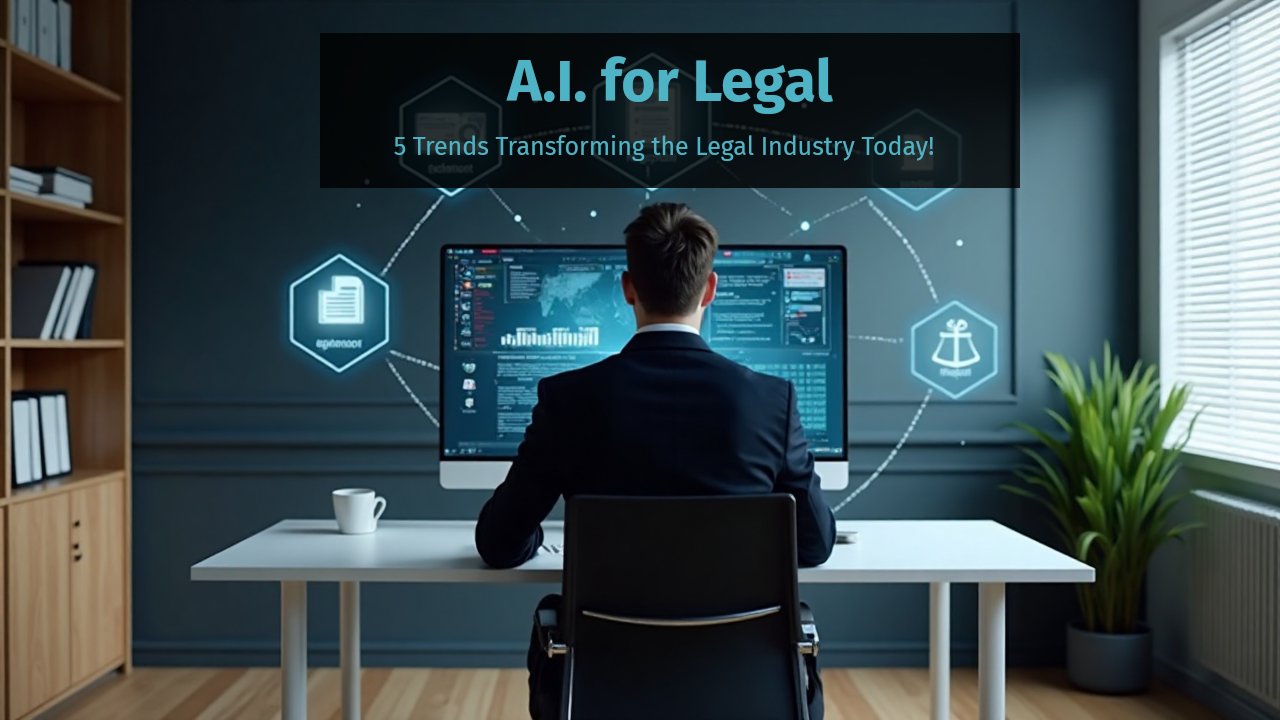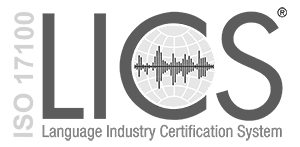Legal Operations in the Age of A.I. and Data
Is your organization one of the few still waiting to properly leverage A.I.?
Across Canada, 61% of lawyers are already using or planning to adopt artificial intelligence—and 26% report using it regularly, more than double the rate just six months ago (LexisNexis, 2024). And when you consider the potential applications, it’s easy to understand why.
A.I. is already reshaping how legal work gets done. From contract management to bilingual compliance, it's helping legal teams streamline operations, reduce risk, and deliver stronger client outcomes. But as adoption accelerates, so does the gap between firms embracing the technology—and those struggling to keep pace.
For legal professionals not yet exploring A.I. to its full extent, the risk isn’t just inefficiency—it’s falling behind peers who are gaining speed, accuracy, and competitive edge with every implementation. Even those already using A.I. are beginning to re-evaluate whether their tools are keeping up with rising demands and expectations.
As globalization intensifies and regulatory pressures mount, the legal industry is entering a quiet but powerful transformation. Below, we explore five A.I. for legal trends reshaping legal services in Canada, and what your team can do now to stay ahead.
1. A.I. for Translation
Enabling Bilingual Compliance and Client Service
In Canada’s bilingual legal environment, translation isn’t a nice-to-have, it’s a requirement. From prospectuses to pleadings, documents often need to be filed or shared in both English and French. And with Québec’s Bill 96 now in force, those obligations have only intensified.
As the legal industry becomes more global and interconnected, language A.I. tools are proving instrumental in helping legal professionals meet their obligations efficiently and accurately. Translation is no longer a support function, and it has become an integral part of regulatory compliance, particularly in jurisdictions like Québec where failing to submit bilingual documentation can lead to rejected filings or legal exposure.
Generic translation tools might seem like a quick fix, but in the legal world, a single mistranslation can cause serious harm—from regulatory breaches to unenforceable contracts or reputational fallout. Legal language is highly nuanced, and even small errors in tone, terminology, or formatting can trigger major consequences.
That’s why general-purpose A.I. tools often fall short. Trained on broad language data, they typically lack the legal domain expertise and contextual sensitivity needed to navigate jurisdiction-specific terminology or bilingual compliance requirements. In high-stakes legal settings, that margin for error simply isn’t acceptable.
Purpose-built A.I. solutions, like those from Alexa Translations, are specifically designed to meet the demands of legal professionals. These tools combine machine learning with legal expertise to deliver accurate, secure, and context-aware translations—supporting compliance, protecting reputation, and enabling faster, more reliable workflows.
Beyond accuracy, forward-thinking firms are also leveraging legal-specific A.I. to reduce translation costs and turnaround times. With Alexa Translations, firms can lower costs by up to 50%, improve consistency, and scale their compliance efforts—without sacrificing legal precision.
Explore how organizations are using this solution in our case studies.
“When tight deadlines are your daily reality, you need service providers who know you so well they operate like an extension of your department. That’s what Alexa Translations does so well.”
— Legal Team, McMillan LLP
With translation memory, clause alignment and document format preservation, legal A.I. translation is quickly becoming an essential layer of modern compliance.
2. A.I.-Powered Legal Research
Smarter Insights, Faster Outcomes
Legal research has always been a cornerstone of effective legal strategy. However, with the exponential growth of legal information, traditional research methods are increasingly time-consuming and less efficient. Enter A.I.-powered legal research tools, which are transforming how legal professionals access and analyze information.
According to the 2025 Rev Legal Tech Survey, nearly half (48%) of legal professionals have integrated A.I.-powered legal research into their daily practice, indicating a significant shift towards embracing technology for efficiency and accuracy (Rev, 2025).
These advanced tools utilize natural language processing (NLP) to swiftly scan vast databases of case law, statutes and legal literature, delivering precise, jurisdiction-specific insights. This capability is particularly beneficial for complex cases involving cross-border elements or multilingual legal documents.
However, the integration of A.I. into legal research is not without its pitfalls. Instances have emerged where reliance on general-purpose A.I. tools led to the citation of non-existent cases, resulting in professional sanctions. For example, in 2023, two New York lawyers were fined $5,000 after submitting a legal brief that included six fictitious case citations generated by an A.I. chatbot (reuters.com). Similarly, in 2025, attorneys from Morgan & Morgan faced sanctions for filing motions containing eight non-existent cases produced by an A.I. tool (lawnext.com).
These incidents highlight the critical importance of using A.I. tools specifically designed for legal applications. Purpose-built legal A.I. platforms are developed with safeguards to minimize the risk of "hallucinations"—instances where A.I. generates false or misleading information. They are trained on vetted legal data and often include features that allow for easy verification of sources, ensuring that the information provided is both accurate and reliable.
As noted in the 2024 ABA Legal Technology Survey Report:
“Law firms have increased investment in multiple things that will lead to greater use of AI tools, including training, use policies, change management, and the tools themselves.”
— ABA Legal Technology Survey Report, 2024 (Law360)
As A.I. technology continues to evolve, its integration into legal research is expected to deepen, offering more intuitive search capabilities and seamless integration into firm-wide knowledge management systems. However, the key to harnessing its full potential lies in choosing the right tools—those built with the legal profession's unique needs in mind.
3. Contract Review & Smart Automation
From Bottleneck to Competitive Edge
Contract work is foundational to legal practice, but it’s also one of its biggest bottlenecks. Reviewing NDAs, supplier agreements and terms of service can eat up billable hours while delaying critical transactions.
Legal A.I. is now helping firms overcome this. With tools that detect risky clauses, highlight inconsistencies and suggest standardized language, legal teams can review high volumes of contracts with greater speed and consistency.
According to the Canadian Bar Association, nearly 40% of corporate legal departments are implementing or exploring contract lifecycle management tools powered by A.I. (CBA, 2025). Many are also using A.I. to pre-screen agreements based on client-specific risk parameters.
Crucially, these tools also support multilingual workflows, helping ensure both English and French versions of contracts remain aligned in Québec and federal matters.
Whether embedded in M&A due diligence or everyday vendor contracts, contract-focused legal A.I. is proving to be more than a time-saver: it's a risk-management asset.
4. Legal Process Automation (LPO 2.0)
Building Scalable Legal Ops
Legal process automation is no longer confined to outsourced discovery work. Today’s A.I. capabilities are transforming how firms approach client onboarding, matter intake, e-discovery and billing reconciliation.
In 2025, 84% of firms surveyed by the American Bar Association believe A.I. will play a central role in their workflows over the next two years (ABA, 2025). Leading firms are already applying A.I. to automate:
- E-discovery triage and tagging
- Conflict checks during client onboarding
- Matter classification and metadata management
By integrating these capabilities into their daily operations, firms not only reduce administrative load, they also create space for higher-value legal work.
Smart automation is no longer about offloading basic tasks—it’s about scaling operations strategically and enabling more efficient legal ops across functions.
Want to Future-Proof Your Legal Operations Strategy? Explore how legal leaders are already leveraging A.I. to streamline workflows, boost cross-functional collaboration, and stay ahead of complex compliance demands. Our on-demand webinar walks through real-world use cases and expert insights designed to help you build a more agile, tech-enabled legal function.
*This program contains one hour of Professionalism Content.
5. Document & Knowledge Management
Smarter Systems, Safer Results
Legal teams have always struggled with managing the volume and complexity of documents. Today, that challenge is multiplied by multi-jurisdictional filings, mounting client data, and the need for seamless collaboration across departments, languages, and regulatory environments.
Enter A.I.-enhanced document and knowledge management systems. These tools do more than store information—they enable legal professionals to work smarter and more compliantly. Modern platforms can:
- Automatically tag documents for bilingual compliance.
- Detect missing metadata, misaligned clause versions, or outdated precedents.
- Suggest revisions based on new legal developments or jurisdictional changes.
They also support secure access protocols, ensuring sensitive legal information is encrypted, access-controlled and stored in compliance with laws like PIPEDA.
However, without proper language handling, even the most advanced systems fall short. Documents that require bilingual precision—particularly in Québec or in federally regulated sectors—must be managed not just for content, but for language parity. This is where A.I.-powered translation becomes an essential layer of legal operations.
When integrated into document workflows, purpose-built translation solutions help ensure legal documents remain aligned across languages—avoiding costly errors, regulatory missteps, or rework at critical stages. Alexa Translations, for example, integrates with platforms like iManage, allowing legal teams to embed bilingual compliance directly within their existing document management systems.
As legal A.I. trends evolve, these systems will be the connective tissue for everything from litigation to business development.
Key Takeaways: A.I. for Legal
- Legal A.I. is no longer experimental—it’s operational. Tools are in use across research, contracts, translation and document workflows.
- Translation is a compliance function, not just a communication one. Québec’s Bill 96 has raised the stakes and legal A.I. is rising to meet them.
- Smart automation isn’t about replacement—it’s about focus. A.I. handles the repeatable so lawyers can handle the critical.
- Integrated A.I. systems enhance risk control. When embedded into knowledge and case management tools, A.I. reduces errors and improves service.
- The future is multilingual, machine-assisted and human-led. Legal professionals who embrace A.I. now will lead the way.
Stay Ahead of Legal A.I. Trends
Want more insights on legal A.I., translation compliance and law firm tech strategy? Subscribe to our newsletter and get curated insights, case studies and industry updates delivered straight to your inbox.














